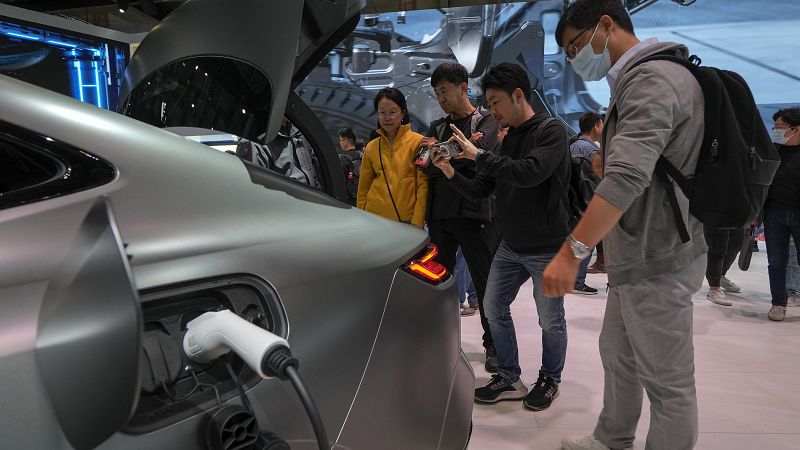Car industry future: EV market obstacles and maintaining profitability

Car use continues to grow on a global scale despite climate threats, according to a new report from consulting firm Arthur D. Little.
From a sample of 16,000 drivers in 25 countries, the study concluded that many users are reluctant to give up their cars.
This is especially true for low-income groups and those in rural areas, where public transport is limited.
Conversely, three-quarters (76%) of those in European cities with a population of over 5 million are prepared to give up their car.
This is compared to 62% in European towns with under 250,000 people.
Car attachment based on region and age
Drivers from different countries were asked to predict how important it would be to have their own vehicle in 10 years' time - compared to today.
Respondents in Spain, France, Italy, Belgium, Norway and Singapore offered up comparatively lower scores, suggesting that it would be less important to them.
On the other hand, drivers in nations like Mexico, Saudi Arabia, and Turkey predicted that it would be relatively more important for them to own a car in a decades' time.
The study also grouped responses according to age.
Compared to those older than 45, drivers under this age threshold appeared more attached to their cars when envisioning future habits.
In Europe, North America, and China, more youngsters rather than older drivers predicted their car would be important to them in 10 years time.
When asked what would persuade them to give up their personal car, respondents cited new, lower-cost mobility services (50%) and high availability of such services (38%).
These alternative mobility services include public transport, private ride hailing, and car sharing.
When asked why they choose new mobility services, respondents listed flexibility (62%), cost (52%), and the environment (44%) as their top three reasons.
The shift to electric vehicles
New registrations of battery electric vehicles and plug-in hybrid electric vehicles continue to grow across the world, reaching a high of 14 million in 2023, according to the International Energy Agency.
The report from Arthur D. Little noted, however, that there are still a number of obstacles to the expansion of the EV market.
One key stumbling block is price, as the up-front prices of electric vehicles remain higher than those of traditional cars in many markets. This isn't helped by a reduction in government subsidies in several countries.
On top of this, the study argued that the most significant barrier to EV adoption is a "fear of the new", as buyers may have "prejudices and preconceptions about them".
Other concerns include the unevenness of charging infrastructure, the length of charging time, and concerns about battery life.
Almost half (49%) of those not choosing a BEV as their next vehicle state battery life as the reason.
For those who already own a BEV, Tuesday’s report showed there are high levels of loyalty, with 76% expecting to replace their vehicle with another BEV.
Geopolitical rivalries threaten profitability
The report also highlighted how competition between major car manufactures is harming operations on a global scale.
"Companies ... must navigate growing geopolitical rivalries between the US, Europe, and China, which affect operations, especially global supply chains," said Arthur D. Little.
Firms currently weathering these challenges include Stellantis and Volkswagen, who have both recently issued profit warnings.
One underlying threat is weak demand in China, as European manufacturers lose out to Asian competitors.
Car makers in China are notably able to develop sophisticated EVs quickly and cheaply, wooing consumers.
This imbalance is now threatening a trade war between the two blocs after the European Commission launched a probe into Beijing's market practices last year.
According to the Commission, the success of Chinese manufacturers is due to unfair government subsidies that allow EV firms to keep their prices artificially low.
Beijing has hit back, arguing that its industry has flourished naturally.
Today

